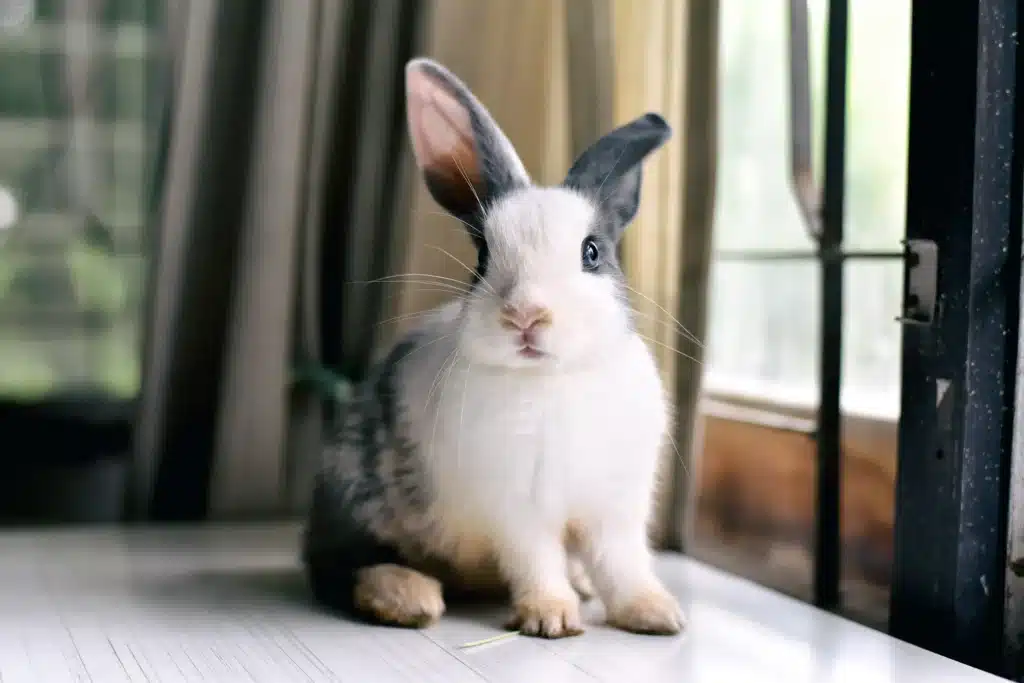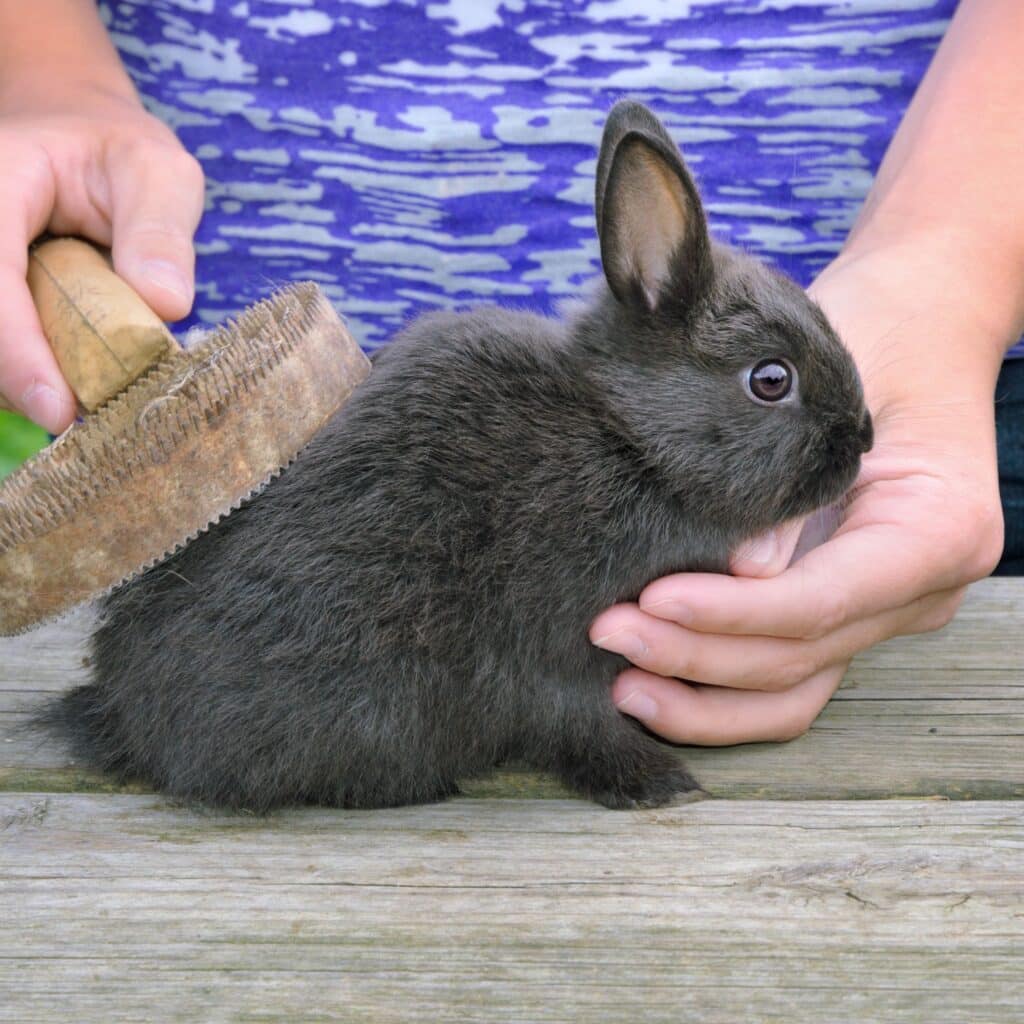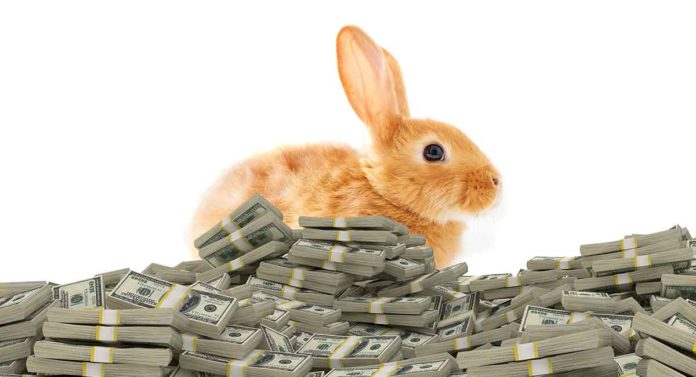Introduction
Rabbits are popular pets known for their adorable appearance and gentle demeanor. If you’re considering adding a rabbit to your family, one of the important factors to consider is the cost associated with their care. While rabbits themselves can be relatively inexpensive to acquire, it’s essential to factor in various costs such as initial purchase, housing, food, veterinary care, and other supplies. In this article, we’ll delve into the different aspects of rabbit ownership that contribute to their overall cost. Keep in mind that prices can vary based on factors such as location, breed, and individual needs, so it’s crucial to do thorough research before bringing a rabbit into your home.
The cost of acquiring a rabbit can vary depending on factors like the breed, age, and where you obtain the rabbit. Some rabbits can be adopted from animal shelters or rescue organizations for a lower fee, while specific breeds or show-quality rabbits might be more expensive when purchased from breeders. On average, you might expect to pay anywhere from $20 to $100 or more for the initial purchase of a rabbit.
Providing a suitable habitat is crucial for your rabbit’s well-being. You’ll need a spacious and safe enclosure, such as a rabbit eat hutch or cage. The cost of housing can vary greatly, ranging from around $50 for a basic setup to a few hundred dollars for larger, more elaborate housing options.
Rabbits have specific dietary needs that include hay, fresh vegetables, and commercial rabbit pellets. High-quality hay is a staple of a rabbit’s diet and should be available at all times. The cost of hay and pellets can vary, but you might spend around $20 to $30 per month on food.
Regular veterinary check-ups are important for maintaining your rabbit’s health. Rabbits require vaccinations, spaying or neutering (if not already done), and dental care. Veterinary costs can vary significantly depending on the services required and your location. Budgeting around $100 to $300 per year for basic veterinary care is a reasonable estimate.

How much does 1 bunny cost?
If you are considering bringing a rabbit home, it’s only natural that you would want to be prepared for all of the normal costs associated with these wonderful pets. Most rabbits cost $35-50 if adopted from a shelter, but expect to pay more than $100 if you are buying directly from a breeder.
Housing and Habitat
Bunnies need a comfortable and safe environment to thrive. A proper habitat includes a hutch or cage, a litter box, hiding spots, and appropriate bedding material. The cost of these items can range from $50 to $200 or more, depending on the size and quality of the products. Many bunny owners opt for larger enclosures to provide ample space for their furry friends to hop around.
Food and Diet
A healthy diet is essential for the well-being of your bunny. Fresh hay, high-quality pellets, and fresh vegetables constitute the core of a bunny’s diet. Hay prices can vary, but a monthly supply might cost around $20 to $30. Pellets and fresh vegetables can add an extra $10 to $20 per month to your expenses.
Veterinary Care
Just like any other pet, bunnies require routine veterinary care to ensure their health and well-being. Initial vaccinations, wellness check-ups, and preventive treatments can cost around $100 to $200 annually. Moreover, spaying or neutering your bunny is highly recommended to prevent health issues and behavioral problems. This surgical procedure can range from $100 to $300 or more, depending on your location and the veterinarian.
Accessories and Enrichment
Bunnies are playful animals that require mental and physical stimulation. Investing in toys, tunnels, and other enrichment items can keep them engaged and prevent boredom. These accessories can add another $20 to $50 annually to your expenses.
Is it OK to buy 1 rabbit?
Bunnies are social animals, and, with a few rare exceptions, they need rabbit company. However, if properly and carefully introduced, some rabbits can bond with other animals, such as cats and dogs. You can also keep a solo rabbit, as long as you provide several hours per day of social interaction.
Time Constraints: If you have limited time to properly care for multiple rabbits, it may be better to focus on one rabbit and provide it with the attention it needs.
Existing Pets: If you have other pets that might not get along with rabbits, keeping a single rabbit can be a safer option to avoid conflicts.
Special Needs: Some rabbits have medical or behavioral issues that make it challenging for them to bond with other rabbits. In such cases, providing a safe and comfortable environment for a single rabbit might be the best choice.
Individual Personalities: Just like humans, rabbits have unique personalities. Some rabbits may prefer solitude or might have difficulty forming a bond with another rabbit.
Are bunnies cheap pets?
The cheapest option for acquiring a pet bunny is usually an animal rescue. For $5 to $20 you can bring home a rabbit and help reduce rabbit overpopulation and euthanasia of unwanted rabbits. If you decide to buy a bunny at a pet store, you could spend up to $40 for an average rabbit.
Food and Diet: Bunnies require a balanced diet of hay, pellets, and fresh vegetables. The cost of quality hay and pellets, along with fresh produce, can amount to around $30 to $50 per month.
Veterinary Care: Routine check-ups, vaccinations, and preventive treatments are essential for your bunny’s health. Veterinary expenses can add up to $100 to $200 annually. Spaying or neutering, which is highly recommended, can cost between $100 to $300 or more.
Accessories and Enrichment: Bunnies need toys, tunnels, and other forms of enrichment to keep them mentally and physically stimulated. Budgeting around $20 to $50 annually for these items is advisable.
Grooming: Depending on the breed, some bunnies require regular grooming to prevent matting and maintain a healthy coat. Grooming tools and occasional professional grooming services can add $50 to $100 per year.
Miscellaneous Expenses: Unforeseen medical emergencies, medications, and unforeseen circumstances can lead to additional costs of around $100 to $200 annually.
Are rabbits legal in India?
Imported rabbit breeds are legally allowed to be kept as pets in India, while native wild rabbit breeds are not allowed as pets. Under the Wilde Life Protection Act 1972, rabbits originating in India are considered wild and protected. Albino rabbits are popular among animal lovers in India.
Lack of Specific Regulations
As of my last knowledge update in September 2021, there is no specific law or regulation in India that pertains specifically to the ownership of pet rabbits. Unlike certain exotic animals that are regulated under the Wildlife Protection Act, 1972, rabbits are not classified as wildlife and are not subject to the same level of legal oversight.
Ownership and Trade
Rabbits are commonly kept as pets in India, and their ownership is generally considered permissible without the need for special permits or licenses. They are often available for purchase from pet shops, breeders, and even animal shelters. However, it’s advisable to ensure that any rabbits you acquire have been ethically bred and are in good health.
Animal Welfare Considerations
While there might not be explicit regulations for rabbit ownership, it’s important to prioritize the welfare of these animals. Rabbits require proper care, appropriate housing, a balanced diet, veterinary attention, and mental stimulation. Neglect or cruelty towards any animal, including rabbits, can potentially be addressed under broader animal welfare laws and principles.
Local Regulations
It’s worth noting that some cities or local municipalities in India might have specific bylaws or regulations related to pet ownership. These regulations can vary, and it’s advisable to check with your local authorities or animal welfare organizations to ensure compliance with any relevant guidelines.
Is rabbit a cute pet?
In addition to being downright adorable, they can be affectionate, playful, and full of personality. People have described their pet rabbits as funny, sweet, adventurous, and even dramatic. While rabbits may be small and quiet house pets, they require attention, care, and love just like other companion animals.
Fluffy and Cuddly Appearance
One of the most striking features of rabbits is their soft and fluffy fur. From the velvety touch of their ears to their plush coats, rabbits evoke an instant desire to reach out and cuddle them. Their fur comes in a diverse range of colors and patterns, adding to the visual appeal that makes them irresistible.
Expressive Faces
Rabbits have a remarkable range of facial expressions that can communicate a wide spectrum of emotions. Their large, soulful eyes and twitching noses give them a curious and alert appearance. They can convey joy, curiosity, and even playfulness with a single glance, making them endearing companions to observe and interact with.
Playful Behavior
Rabbits are naturally inquisitive and playful animals. They engage in activities such as hopping, binkying (joyful leaps and spins), and exploring their surroundings. Their antics are both amusing and heartwarming, providing endless entertainment for their owners.
Bonding and Affection
Contrary to their reputation as aloof animals, rabbits can form deep bonds with their owners. They may nuzzle, nudge, or even follow you around, displaying affectionate behaviors that melt hearts. Some rabbits enjoy being petted and held, further enhancing the strong connection between them and their human companions.
What do rabbits eat?
Good quality hay and/or grass, always available, should constitute the majority of rabbits’ diets. – Rabbits graze, naturally eating grass/other plants for long periods, mainly at dawn and dusk. – Rabbits’ digestive systems need grass and/or hay to function properly.
Hay: The Staple Diet
Hay is the foundation of a rabbit’s diet and should make up the majority of their daily intake. Fresh, high-quality hay provides essential fiber that supports proper digestion and helps wear down their continuously growing teeth. Timothy hay, orchard grass, and meadow grass hay are commonly recommended for rabbits. A consistent supply of fresh hay should always be available to them.
Fresh Vegetables
Fresh vegetables contribute to a well-rounded diet for rabbits, offering essential vitamins, minerals, and hydration. Leafy greens such as kale, spinach, romaine lettuce, and parsley are great choices. However, it’s important to introduce new vegetables gradually to prevent digestive upsets and to ensure your rabbit’s tolerance to each type.
Pellets
Pellets are formulated to provide additional nutrients to rabbits. Opt for high-fiber pellets with minimal fillers and no added sugars. The appropriate portion size of pellets varies based on your rabbit’s size and age. Generally, pellets should make up a smaller portion of their diet in comparison to hay and fresh vegetables.
Fresh Water
Access to clean and fresh water is crucial for rabbits to stay hydrated and maintain overall health. Ensure that your rabbit always has access to a clean water source.
rabbit a lucky pet?
Rabbits are a common symbol of good luck, positivity, fertility, and growth in many cultures—from North America to Europe and Asia. Most prominent in spring, they are associated with renewal and rebirth after winter.
Positive Associations
Rabbits’ gentle demeanor, soft appearance, and sociable nature have contributed to their positive image as lucky pets. Many people find comfort and companionship in these animals, which can enhance their sense of well-being and overall positivity.
Individual Beliefs
Whether a rabbit is considered a lucky pet ultimately depends on individual beliefs and cultural upbringing. Some individuals might hold superstitions that link rabbits to luck, while others might not attribute any particular luck to them.
Responsible Ownership
Regardless of cultural symbolism, it’s important to remember that the “luckiness” of a pet, including rabbits, is influenced by the responsible care and attention provided by their owners. The well-being and happiness of a pet depend on factors such as proper nutrition, housing, companionship, and regular veterinary care.
Is rabbit good for Vastu?
According to legends, keeping a rabbit at home Vastu promotes purity and good fortune. Additionally, by removing bad energy from the home, the communication of positive energy is increased, if you keep a rabbit. The rabbit is seen as a symbol of pleasure and success in Vastu as well.
Vastu Shastra, certain animals are believed to embody specific energies and traits that can influence the energy flow within a space. While rabbits might not be as explicitly mentioned in Vastu texts as some other animals, they do possess qualities that align with Vastu principles:
Fertility and Growth: Rabbits are known for their rapid reproduction, symbolizing fertility and growth. In Vastu, these qualities can be associated with prosperity and abundance within a household.
Positive Energy: The gentle and playful nature of rabbits can bring a sense of joy and positive energy to a space. This aligns with Vastu’s emphasis on creating environments that promote well-being and harmony.
Placement Considerations
According to Vastu Shastra, the placement of objects and living beings within a space is essential for balancing energies. If you are considering keeping rabbits in accordance with Vastu principles, consider the following guidelines:
North or East: These directions are associated with positive energies and are considered auspicious for keeping animals. Placing your rabbit’s habitat in these directions can contribute to a harmonious energy flow.
Clean and Well-Maintained: In Vastu, cleanliness and organization are crucial. Ensuring that your rabbit’s living area is kept clean and well-maintained aligns with Vastu principles of maintaining a positive energy flow.

Conclusion
In conclusion, the cost of owning a rabbit encompasses various factors that contribute to the overall expense of caring for these delightful pets. While the initial purchase of a rabbit might range from $20 to $100 or more, the ongoing expenses associated with housing, food, veterinary care, supplies, and emergency funds can add up. On average, you might anticipate spending around $500 to $1,000 or more in the first year of rabbit ownership, with annual costs ranging from $300 to $700 in subsequent years.
However, it’s important to note that these figures are estimates and can vary significantly based on factors such as location, breed, and individual needs. Before bringing a rabbit cost into your home, it’s recommended to conduct thorough research, create a budget, and ensure that you’re financially prepared to provide the necessary care and attention that these wonderful animals require. While the costs associated with rabbit ownership can be significant, the joy, companionship, and love that rabbits bring into your life can make the investment well worth it for many dedicated pet owners.




No Comments